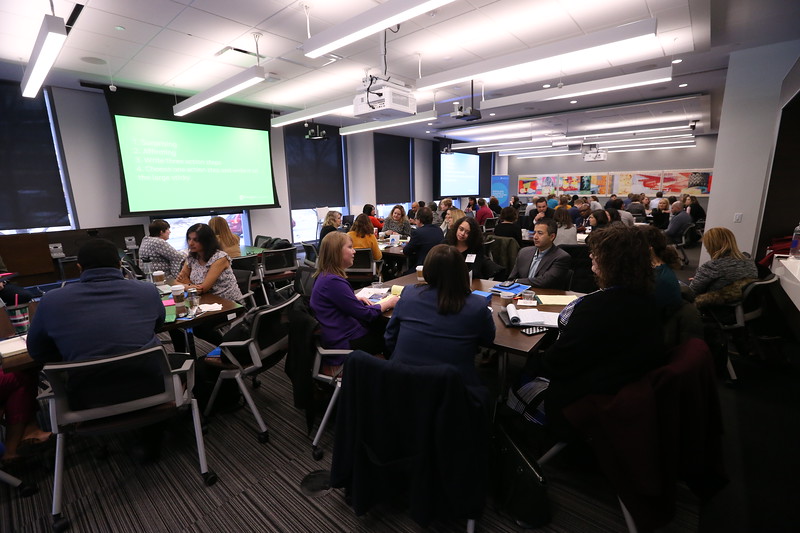More than half of Americans under the age of 30 have already hit financial rock bottom spurred by mental health challenges, job loss and debt, according to new research by the Principal® Foundation into the financial barriers, attitudes and behaviors of today’s young adults.
The research report, “Youth Finances in the U.S.: Stories of Adversity and Hope,” presents a nuanced picture of young people and their relationship to money. Drawing on 30 interviews and a survey of 2,400 Americans, the findings reflect the economic reality for much of the U.S. Half of the respondents live in low- to moderate-income households, defined as 40% or lower than the median income for their household size in their zip code.
The research from the Principal Foundation–an independent not for profit organization that receives funding from Principal Financial Group®–also points to practical ways for individuals, organizations, parents and policymakers to help the next generation meet their financial goals.
Financial crises can strike early, which is why access to just-in-time financial guidance and resources are important. According to Principal Foundation’s research, young people who receive financial support and guidance during important milestones in their financial lives are significantly more likely to avoid rock bottom.
Among the key findings:
- Depression, job loss, and debt are primary barriers to financial stability. More than half (54%) of respondents under the age of 30 said they’d already hit financial “rock bottom.” Among those young adults who’d experienced rock bottom, the most common contributor was depression/mental health (identified by 35% of respondents), followed by job loss (34%) and overwhelming debt (30%).
- 1 in 4 young people say their debt is overwhelming. Credit cards are the most common source of debt for young people, and many said a strong credit score is more important than savings. But those who are overwhelmed by debt are much more likely than their peers to have student loans, auto loans, personal loans, and medical bills.
- Young people are hopeful for their financial futures, despite challenges. In the long-term, 80% of all young Americans agreed that with hard work they can achieve their financial goals. Young people in low- to moderate-income households are nearly as optimistic as their peers—77% have a rosy five-year outlook, compared with 84% of respondents from higher-income environments. In the short term, they are more likely to be optimistic about their 2020 financial outlook when they have access to a trusted resource for financial advice and support.
Despite challenges, young Americans show remarkable grit and resiliency. They embrace the value of hard work, set financial goals, and seek innovative ways to supplement their income. The foundation believes these young people—and all people—should have access to meaningful financial support to reach their goals; and they are committed to helping them to overcome obstacles to financial security.
The foundation unveiled the research to a group of 80 Iowa nonprofit leaders, educators, and financial services professionals on January 15 during an event designed to create action steps around improving the financial wellbeing of youth in the U.S.
Already, the foundation works on a global scale to help people build financial security through research and innovation, grantmaking, volunteerism, and match giving programs. The foundation commits approximately $10 million each year to help people around the world to learn, earn, and save. The Principal Foundation YouthCan Innovation Initiative, a signature grant-making program in partnership with the Financial Health Network, helped more than 2,200 low- to moderate-income youth in 2019 through the support of four organizations. Those included MyPath, which last year supported more than 200 low-income youth in San Jose and Seattle with banking, savings, and credit-building tools and information as they earned their first paychecks. Another partner, Edquity, helped more than 1,000 community college students to weather financial emergencies through a digital education platform and access to emergency financial aid. The foundation aims to help 50,000 young people through its programming by 2023.
Parents, policymakers, educators, and financial services professionals can all play a critical role in helping young people to have enough, save enough, and protect their financial futures.
Research Methodology
The Principal® Foundation and Vital Findings conducted an online survey of 2,400 Americans between the ages of 15 and 36. Half of the respondents were classified as low- to moderate-income, defined as having a household income which is 40% or lower than the median income for their household size in their zip code. The quantitative survey was completed in October 2019 and was book-ended by a total of 30 online and video interviews with low- to moderate-income Americans aged 15-30.
About the Principal Foundation
The Principal® Foundation imagines a future where all people, especially youth, have the opportunity to learn, earn, and save for lifelong financial security. We work on a global scale to help people build financial security through research and innovation, grantmaking, volunteerism, and match giving programs.
The Principal Financial Group Foundation, Inc. (the “Principal Foundation”) is a distinct, not for profit, undertaking separate from the Principal Financial Group, Inc. (“Principal”). While the Principal Foundation receives funding from Principal, the Principal Foundation is an independent organization. The Principal Foundation does not practice any form of investment advisory services and is not authorized to do so. The Principal Foundation YouthCan Initiative is a venture of the Principal Foundation and is aligned with the goals and objectives of the Principal Foundation.


